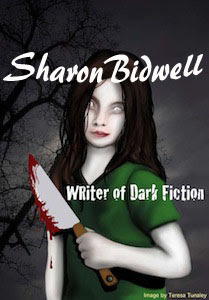Hi Everyone!
As always, I’ve set this out so you can read the sections you want to read. I have publishing news, so note the writing section.
AT HOME:
It’s been a fairly quiet time, though I’ve been busy writing. We’ve got out to walk locally, but nothing to impart on the home front this month.
FILM/TV:
Right now we’re still re-watching Castle (Disney) as we never got to the end originally (Sky box melted; not kidding — came home to the smell of melting plastic one day and we gave up as they refused to give us a deal on a new box).
We are now watching The Discovery of Witches on NOWTV (only ever read the 1st book, though I thoroughly enjoyed it, so may need to get around to the 2nd and 3rd).
We’re still re-watching Star Trek Next Gen on Netflix, and the US version of The Office, which, I said last month, has pleasantly surprised me. I liked the UK version and often when there’s a remake elsewhere, it’s never as good. This time it feels as good just different. The US version has a surprisingly British feel to it, no doubt because Ricky Gervais was involved.
And we watched Around the World in 80 Days on BBC iPlayer, which is surely one of the best things the ‘Beeb’ has made for some time. Have to admit we seldom watch anything from the BBC these days, and would happily see the back of the TV Licence because of it — sorry, but it’s time we stopped paying for things we don’t use, and one or two programmes isn’t enough to warrant the cost. Glad to hear there’ll be a second series and it would be wonderful if they keep to Jules Verne stories, but even that wouldn’t make me subscribe. As for another series, we’re keeping up with Death in Paradise.
READING:
Lightning, Dean Koontz
A re-read for me, though I’ve never forgotten the heart wrenching moment following the fire which I first read on a train journey when I had to put the book down. Times have changed. Knowing what was coming, I wasn’t so affected this time, and the story of publication success seems farfetched in these turbulent times of the industry, though in rare cases it happens. This is a tight supernatural science fiction thriller, and I enjoyed it as much now as I did so many years ago. What I realised during this reread is the sorrow in these pages is as important as all the other aspects to make the work enjoyable. Without conflict, there is no story, and this book has it in bucket loads.
The Hapless Child, Edward Gorey
I can’t really claim to have ‘read’ this book, as there’s not much to read. Each page contains a simple statement and one of Gorey’s quirky drawings, which is really what makes the book. Warning: if you don’t already know the story and don’t want to know the details, then don’t read the book flap because it gives the facts away. Fortunately, I had some inkling. When finished, which I did in under five minutes, even taking time to study the pictures, the bleakness left part of me harrowed, and part of me wanted to laugh. That could be partly a dark, twisted sense of humour, or a coping mechanism. I’m sure it’s both. One of the dreariest tales, this is perfect to dig out when anyone moans about their lot in life because you can remind them of poor little Charlotte Sophia. The type of book Jack Skellington would mistakenly give out to children for Christmas. This makes me think of the original fairy tales, which are darker than many people who haven’t read them believe. There’s something oddly interesting about this little book.
Tender is the Flesh, Agustina Bazterrrica
The subject of humans being used as meat is not a new one, and I could mention another book which I feel has approached it better. I wanted to feel for the main character in this novel, but I couldn’t connect with the story mostly because of the way it’s written. Many authors seem to adopt present tense recently, but it took several confusing pages for me to realise ‘he’ almost always means the main character. For example: “El Gringo steps away from Egmont and approaches him, just as he’s thinking there must be more than 200 in the barn.” Read as is, this sentence is very confusing. How can someone both step away AND approach? And who is doing the thinking? When you realise the ‘him’ and the ‘he’s thinking’ are both Marcos (the MC), the sentence becomes clearer, but I’m surprised any decent editor allowed the book to go to publication like this, and would take it as a self-published book. The entire basis of the story — the almost non-existent animal population because of a virus — would present a far great ecological disaster than humans being unable to find meat for their dinner plate. Then there’s the scene of animal cruelty which adds nothing to the story. I dislike animal cruelty in books, though will tolerate it if I feel it is important, but here it struck me as entirely unnecessary. I hate sounding negative. The author tells a decent story, and aside from the lack of a personal pronoun for the main character can clearly write. However, the book is neither frightening as a horror story, nor does it work as a great allegory, except, perhaps, to show human nature at its most bleak and appalling.
Cunning Folk, Adam L.G. Nevill
Having experienced bad neighbours, this book contained some personal horror for me, so much so, I found it hard to switch off after reading one section. Yes, this is supernatural horror, but the twin joys of moving in a money pit of a house next door to the worse neighbours one can imagine makes for a memorable folk horror. I must admit, the ‘folk next door’ presented a greater horror than what might be out in the woods for me. Maybe disturbing more than scary, but, though horror is a favourite genre for me, I’ve yet to find a truly scary book. I found a few of the descriptive sentences a little too much, perhaps excessively flowery, needing to read them twice, but I find Nevill’s style of work compelling, so even an occasional awkward sentence would never deter me. Opinions are just that, anyway, with no true right or wrong. I’m a reader who appreciates an author who takes me on an unexpected journey, and I also appreciate Nevill has an extensive vocabulary. The descent into madness (neighbours driving a person crazy), is spot-on and disturbingly delightful.
The Butterfly Garden, Dot Hutchinson
I started reading this book against my better judgement upon recommendation. Written in both first person sections and others in present tense, I was immediately uncertain, but it works to tell this story. The educated way the main protagonist speaks also threw me, a rather sophisticated way for such a young woman. This is a horrible rape thriller (though there are no portrayed rape scenes), and (horrible) is what it should be. Maybe it tries to play psychoanalyst to both victim and criminal, but it doesn’t quite succeed. Some readers find this book disturbing. Others hate it and blame the victims for not fighting back, and, to a point, I agree with both observations. I have to wonder when faced with an impossible prison, and a worse ‘caretaker’ if one killed one’s keeper, what might many people do, even if eventual death is unavoidable? Still, I find it unrealistic — there’s not enough covered in the book for those who fell apart; they’re almost a footnote, pure observation. We’re not shown those who perhaps sought a way out, even if they paid the ultimate price. We don’t hear their screaming and crying, only weeping… and there would be more variations of reactions, emotions, and personalities, loud and quiet; subdued and violent. Disturbing? Though I shed a tear during a couple of moments, I read most of the story as an unaffected observer and when trying to work out what’s wrong with this book, I feel there I have my answer. There’s a lack of emotional investment. I felt sorry for the plight of the women, felt a natural disgust for the perpetrator, but aside from wanting them to escape purely sympathetically, as any decent person would, I wasn’t rooting for anyone. I think I understand the author’s intent — to keep the main character telling her story dispassionately, because it’s the character’s upbringing and way of coping, but it also leaves the reader in a rather dispassionate place. You can’t sink to the depths of depravity without making the reader feel the anguish. I also couldn’t help reading this without thinking of The Collector, by John Fowles, as this seems to be the same story taken to a more extreme level.
The Ghost Machine, James Lovegrove
When I started this book, I immediately felt this was going to be my least favourite of the first 3 Firefly novels, and in some ways, it is. I think this is because at first the threat didn’t feel genuine enough, but as the conflict ramps up, there’s reason to root for the crew’s survival. In that way it feels like a book of two halves, but it still finds its place in the Firefly universe, although I cannot imagine some of these scenes would ever have made it into an episode. This is in some ways possibly the most brutal story to date.
I’ve started Thud, by Terry Pratchett, so more on that next time.
WRITING
I at last subbed the book I talked about last month. Pleased to announce JMS Books has contracted Sweet Temptations. Release still planned for March. But as this blog is mostly devoted to my darker fiction, I won't say more here.
Stay happy and healthy!
Sharon x

